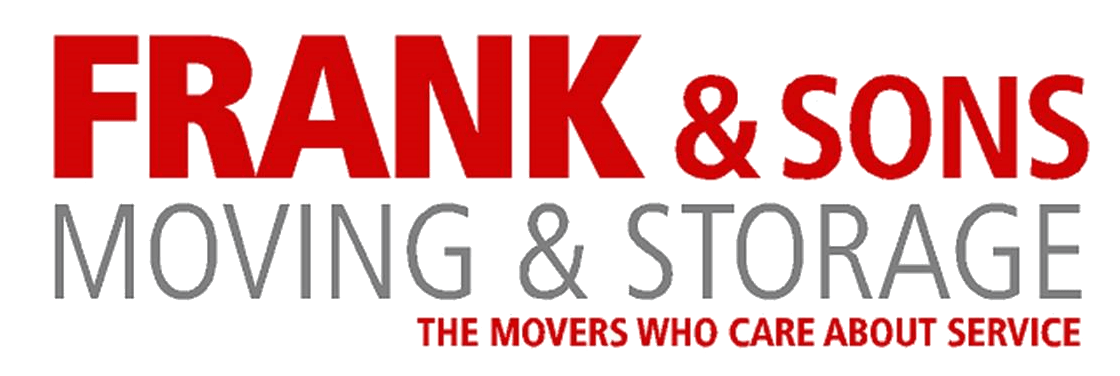
Protect yourself and your belongings, know who you are hiring!
Finding an entrusted professional moving company can seem overwhelming. But doing a little research will be well worth it. With millions of moves every year it’s a miracle that most of them go smoothly, with no issues whatsoever. But even with so many smooth moves, scams or shoddy practices do occur. It’s in your best interest to be informed about every step in the process. Hiring a quality professional mover is a must. By shopping around, you can save money and more importantly, avoid scams. Here are 5 most basic important steps to help you through the process.
Get Recommendations & Initial Screenings:
Ask friends, coworkers, and local real estate agents. Look on line for moving companies that have physical offices, locations/addresses in the general area of your home or business. When you have a list of recommended movers, go online to do a background check. Call or go to the website of the Better Business Bureau. You also can call or e-mail the American Moving and Storage Association (moving.org, 703-683-7410, [email protected]) to see if a moving company is a member, which means it has agreed to abide by the organization’s published tariffs and to participate in its arbitration program. Be sure to check the consumer-advocacy sites movingscam.com. Each of these has a blacklist of companies with a history of consumer complaints, as well as tips and general information about the moving industry. You can also do a search using the company name at Rip-off Report (ripoffreport.com).
Find out how long the company has been in business. You want one that’s been around a while, and ideally 10 or more years. While screening your options, check the following:
- Names and contact information for the company’s references.
- USDOT (U.S. Department of Transportation) and MC (motor carrier) license numbers.
- The U.S. Department of Transportation booklet called “Your Rights and Responsibilities When You Move.” Federal law requires any interstate mover to provide you with this guide, which is the official rule book of the interstate moving industry. (You can download a copy at fmcsa.dot.gov. For in-state moves, movers are regulated by the state’s department of transportation or its public utilities or commerce commission. Some states publish their own moving-guide pamphlets.
Get Estimates thorough walk-throughs:
Do not get estimates through websites that offer to “find you a mover.” Find the mover yourself and avoid the numerous scams associated with some of these sites. Do not use household-goods brokerage services that find a moving company for you because they are not regulated by the laws that movers must follow. You’re going to want to get in-person estimates of how much your move will cost. Don’t rely on video or picture taking type of estimates. Rely on estimates that come from professionals who have personally looked in every one of your closets, cupboards, garage etc. A large component of the mover’s price is based on the weight of your belongings and the space your goods take up in the truck. Also, make sure the estimator knows about any conditions at your new home that might complicate the move, such as stairs, elevators, or a significant distance from the curb to the closest door. Be sure you understand this estimate and that it is as accurate as possible. Don’t make assumptions that big-name companies are best. If you’re moving to another state, ask if the company will give you a written binding estimate or, even better, a binding not-to-exceed estimate. Both types of estimates put a guaranteed cap on what you will pay for your move. While nonbinding estimates are legal (if they’re given free), as the U.S. Department of Transportation moving guide warns, “You should expect the final cost to be more than the estimate.” And while interstate movers can charge you for binding estimates, most will offer them free. Estimates for interstate moves will be based on the weight of the items you’re moving and the distance of the move. For moves within the same state, rules about estimates vary:
Review the Estimates
The estimate may be a combined document that, when signed by you and the moving-company representatives, serves as your order for service and bill of lading, too. These, along with the inventory lists created when your household or business goods are loaded, are the basic documents any mover should provide you with. Make sure you see the words “written binding estimate” up top, as well as the mover’s signature with a date at the bottom. For an interstate move, the estimates should clearly describe the type and the quantity of goods you’re shipping, the distance to your new home or business, when your things will be picked up and delivered, and any additional services such as packing and supplies. Storage is an additional benefit and cost if you cannot move immediately into your new dwellings. If you want to purchase additional insurance from your mover (above the standard 60 cents a pound that the mover’s insurance covers), make sure you understand the costs and details of that coverage. For an in-state move, for which you can’t get a binding estimate, you should still get a written estimate that sets out the hourly rates and any additional costs you may incur (for supplies, tolls, driving time to and from the mover’s facilities). If you’re not sure about anything in the estimate, call and ask. Have the companies send you a revised written estimate if necessary, don’t just take someone’s word for anything.
Compare Estimates
Be very cautious of any company that comes in much lower than the others. Look at high bids to see where the extra costs are coming from. Call and ask questions if you don’t understand something or need clarification on things. Once you have several reasonable sounding bids from reputable companies, don’t be afraid to negotiate to get the best possible rate. Especially in a market where there’s lots of competition, most movers will work with you on pricing.
Make sure your moving company has the license and insurance it needs to move you legally.
There are movers who solicit business without the legal authority to do so. Go to safersys.org, the website of the Federal Motor Carrier Safety Administration (FMCSA), and enter the company’s USDOT number and click on “Search” (you can also search by name or MC number). If you have an accurate DOT number, you’ll be shown a screen with lots of information on the company. Here’s what to look for:
- The company’s name, address, and phone numbers. Are they the same ones the company gave you?
- The “Out of Service” field, at the upper left of the form, should say “No.”
- The fields labeled “Power Units” and “Drivers” tell you how many trucks and drivers the company has. A company that claims to do 100 moves a month but has only two trucks deserves skeptical treatment.
- Under “Operation Classification,” there should be an X next to “Auth. for Hire.”
- Under “Carrier Operation,” if you are moving out of state, there should be an X next to “Interstate.”
- Under “Cargo Carried,” there should be an X next to “Household Goods.”
- Farther down, in the “Inspections/Crashes” section, you should be concerned if the company’s average is much higher than the national average shown. In the “Safety Rating” section, if there has been a review, the results should be “Satisfactory.”
- At the bottom of the page, click on the “FMCSA Licensing & Insurance site” link. On the next page, click on either the “HTML” or the “Report” button under “View Details” to get to the “Motor Carrier Details” page. Under the column “Authority Type,” there are three listings: “Common,” “Contract,” and “Broker.” The “Authority Status” column to the right tells you if the company’s authority is active. At least “Common” should be listed as active, with “No” under “Application Pending.”
- In the next table down, there should be a “Yes” under “Household Goods.”
- The bottom table contains insurance information. A moving company is required to have both bodily-injury and property-damage (BIPD) insurance ($750,000 minimum) and cargo insurance filed. Under the heading “Insurance on File,” BIPD should be at least $750,000, and “Cargo” should say “Yes.”
- You can also call the FMCSA to get information on the status of a company’s licensing (202-366-9805) and insurance (202-385-2423).
Affordable, Safe & Hassle Free Moves
Whether you are moving across the street or across the country, Frank and Sons Moving and Storage has been the local, long distance and international moving company thousands of homeowners across the country have entrusted to effectively coordinate and execute successful moves. Whatever your relocation requirements, Frank and Sons Moving and Storage has the solution to fit your needs. Contact us today.
